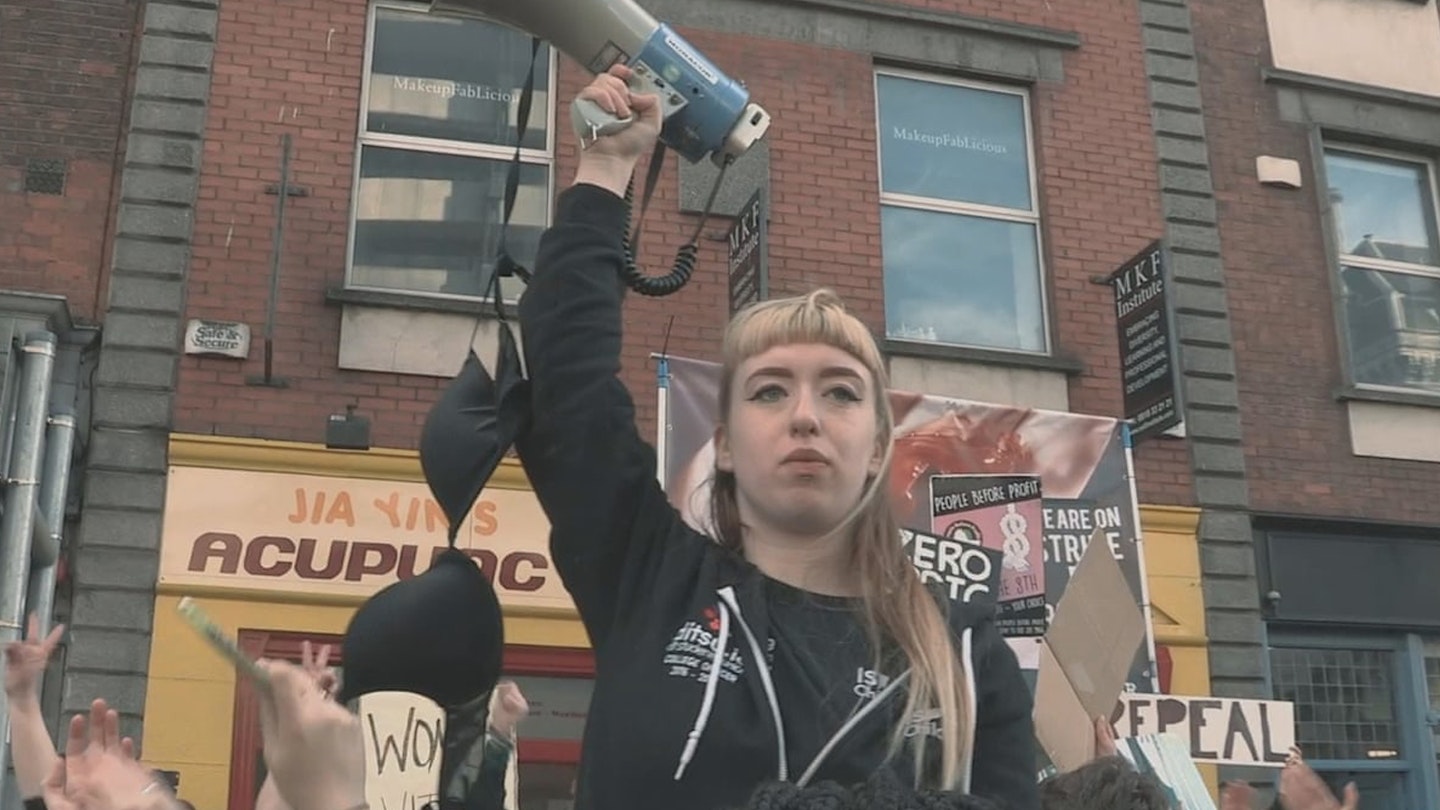The 8th amendment was added to the Irish constitution in 1983, giving the unborn equal rights to life of those of the mother, making abortion illegal. From that moment on, some campaigners never stopped fighting. These include activist Ailbhe Smyth, who invites the camera crew into her home to show them a large glass award in the shape of a G, “for being a good gay, basically”, and framed photos of daughter, Lydia, and granddaughter, Martha. “I was really always fighting with Lydia in mind and now I’m fighting with Martha in mind,” she says, eyes trained on the Ireland they will inherit.
With an apparent ease that belies hours of careful story-thread blending, filmmakers Lucy Kennedy, Aideen Kane, and Maeve O'Boyle knit together the personal with the political, following Smyth onto the streets where a seething mass of polarised passions manifests in marches by both sides. The filmmakers interview an impressive cross-section of people, feeding in archival newspaper, radio and television snippets that serve as a timeline of key events from 1983 to 2018. Due emphasis is placed on the position of religious authorities. In 1992’s The X Case, a suicidal 14-year-old, pregnant with her rapist’s baby, led to a judgement that abortion could be granted in such extreme cases. The reaction of Father Michael Clearly was to warn that now: “Every girl can say she’s suicidal. Every girl can say she’s been raped.” Throughout, men hold court on what women should do with their bodies with a chilling conviction that makes saints out of the campaigners pushing back on them.
Kennedy, Kane, and O’Boyle have made a documentary alive with the raw energy of protest, marshalled by a strategic focus. Emotional undercurrents sometimes surge into an overwhelmingly moving expression of mass solidarity. The political stakes of 25 May 2018 are well-established so that when the result is finally called you feel it in that site of struggle: the body.
